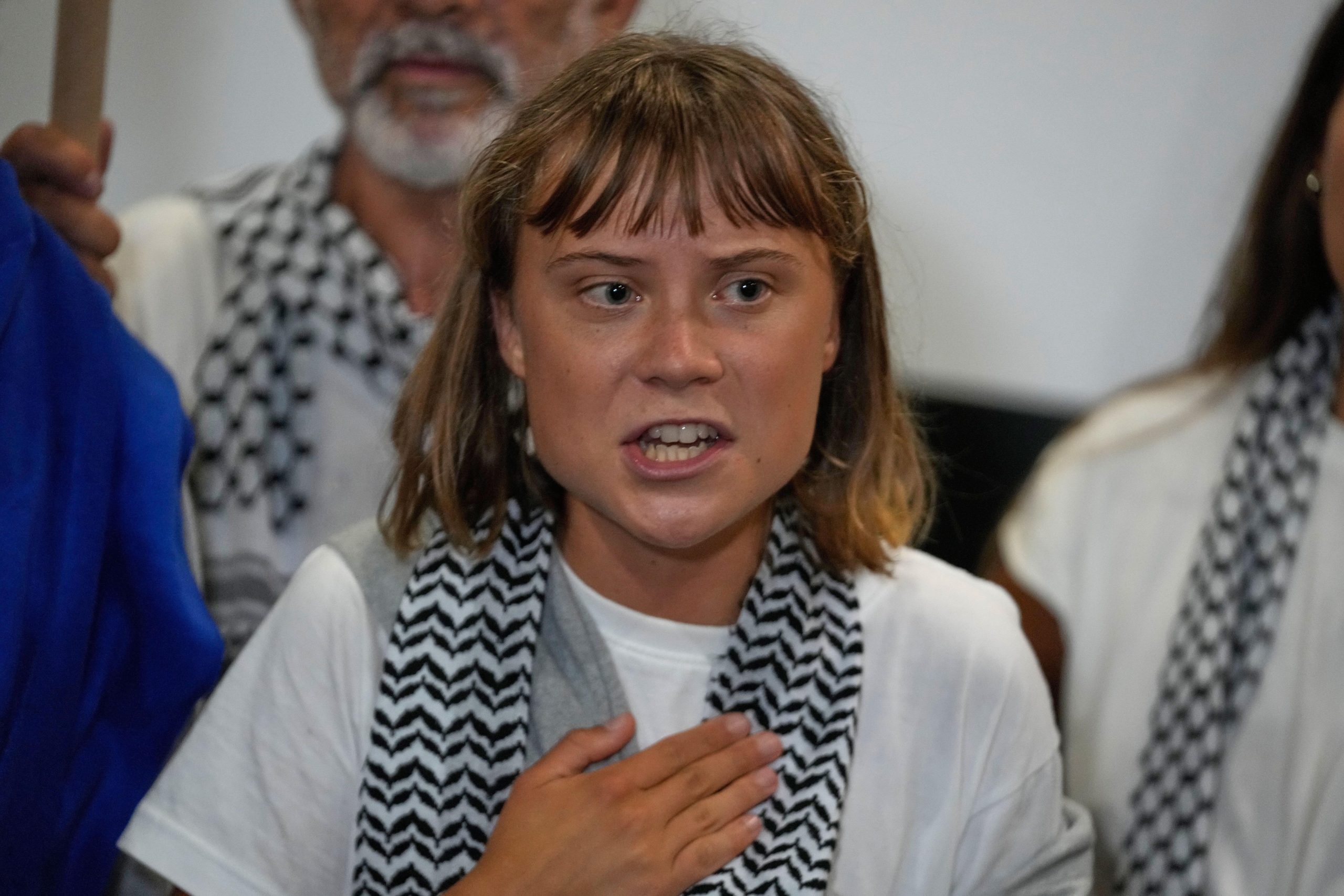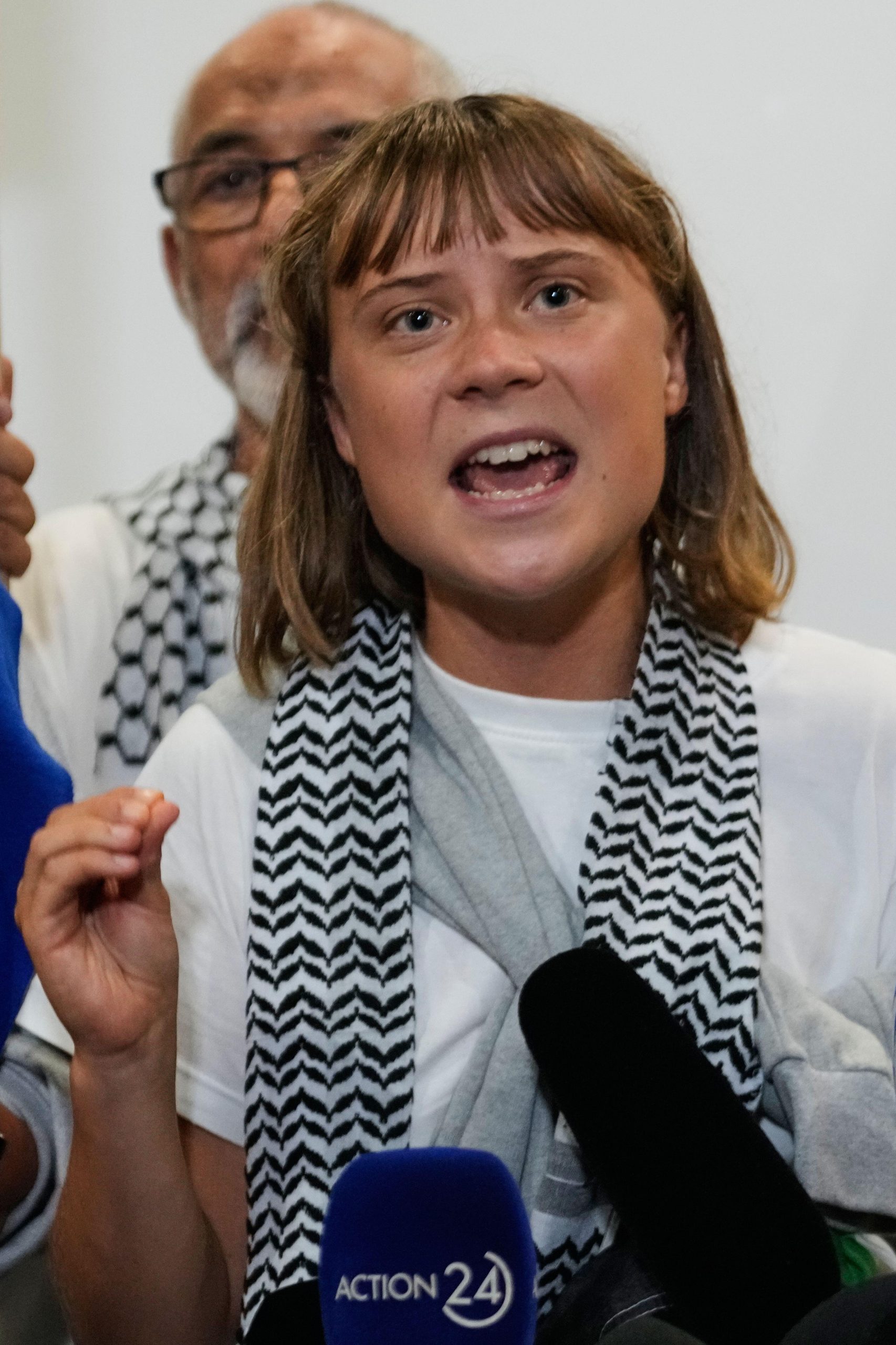The Disturbing Allegations Against Israeli Forces Involving Greta Thunberg
In recent days, media reports have emerged detailing alarming claims made by Swedish climate activist Greta Thunberg, who alleges she experienced severe mistreatment after being detained by Israeli forces. Thunberg, 22, has shared her account of what she describes as harsh treatment during her time in custody, raising significant concerns regarding the treatment of activists in conflict zones. These revelations have sparked outrage and ignited discussions around human rights violations and the treatment of those who advocate for humanitarian causes. The implications of her allegations extend beyond her personal experience, highlighting the precarious position of activists who engage in advocacy amidst geopolitical conflicts.
Allegations of Mistreatment and Torture
According to Thunberg, her experience began when she was removed from a flotilla aimed at delivering humanitarian aid to the Gaza Strip. The flotilla, known as the Global Sumud flotilla, consisted of 40 vessels carrying essential supplies, and Thunberg was among 437 activists aiming to address the humanitarian crisis in Gaza. She claims that during her detention, she was subjected to conditions that can only be described as inhumane. Reports indicate that Thunberg was held in a cell that was infested with bedbugs and provided with minimal sustenance, leading to dehydration and skin rashes. An email from the Swedish foreign ministry substantiated her claims, noting the inadequate amounts of food and water she received during her time in custody. Such treatment not only raises questions about the legalities surrounding the detention but also illustrates a troubling pattern regarding how states respond to humanitarian efforts.

Witness Accounts from Fellow Activists
Thunberg was not alone in her ordeal; she was part of a larger group of activists united by a common cause. Turkish activist Ersin Çelik, who was also present during the incident, provided a harrowing account of the circumstances surrounding Thunberg’s detention. He reported that Israeli soldiers dragged her by her hair and assaulted her, indicating a level of violence that is shocking, particularly against a figure of nonviolent activism. He further alleged that Thunberg was forced to kiss the Israeli flag as a form of humiliation, a claim that has sparked further outrage across social media platforms. Such testimony raises questions about the treatment of activists and the extent of the violence they encountered, echoing concerns of systemic issues within the military approach to humanitarian activists.
Escalation of Tensions Amid Political Turmoil
The context of these events is further complicated by ongoing tensions in the region. The Israeli government has recently approved aspects of a peace plan put forth by the Trump administration, which purportedly aims to facilitate a ceasefire and the return of hostages. However, as Thunberg and many activists have highlighted, the treatment of individuals involved in humanitarian efforts remains a pressing issue. During a press conference in Stockholm, Thunberg expressed her reluctance to discuss the details of her ordeal, emphasizing that the focus should remain on the broader narrative of human rights and the plight of those affected by the conflict. This reluctance underscores the gravity of her claims and the ethical dilemmas faced by activists who must navigate their own safety while advocating for the rights of others.

The Global Response to Thunberg’s Allegations
Thunberg’s claims have resonated with international audiences, igniting debates about the responsibilities of governments and military forces when dealing with peace activists. Human rights organizations, starting to take note of her allegations, have begun to call for a thorough investigation into the treatment of activists operating in conflict zones. Prominent organizations such as Amnesty International and Human Rights Watch have issued statements urging accountability and transparency from the Israeli government. The spotlight is now on Israeli authorities to address these serious accusations and ensure that such incidents do not continue to occur. The activist community is rallying around Thunberg, emphasizing the importance of standing together against oppression and advocating for the rights of all individuals, regardless of their political affiliations or beliefs.
The Path Forward: Advocacy and Awareness
As the situation develops, the need for increased awareness about the treatment of activists and humanitarian workers becomes even more critical. Thunberg’s experience serves as a powerful reminder of the risks faced by those who dare to speak out against injustice. While she has expressed her desire to move beyond her personal experiences, the implications of her story are far-reaching. It highlights the ongoing struggle for human rights and the vital role of activists in advocating for change, even amidst dangerous circumstances. The global community must take heed of these disturbing allegations and work collectively to ensure that activists are protected in their efforts to promote peace and justice.
In light of Thunberg’s allegations, it becomes increasingly crucial for civil society to engage in dialogues that foster understanding and cooperation among disparate groups. Advocacy campaigns must not only focus on individual cases but also address broader issues such as the systemic suppression of dissent and the importance of protecting free speech. As Thunberg continues to raise her voice for the environment and human rights, it is essential for supporters to stand in solidarity with her and all those who face adversity in their fight for a better world. The journey toward justice is never easy, but it is one that must be undertaken with determination and resilience. As the narrative unfolds, it remains vital that the international community remains vigilant in its pursuit of justice for all human rights advocates.

















